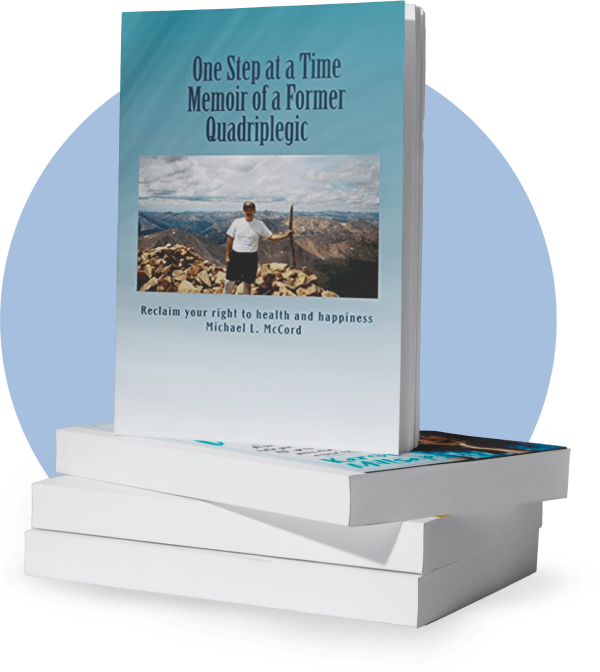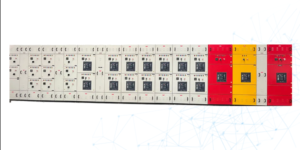Michael on the Mind-Body Connection in Healing
Have you ever wondered how your thoughts and emotions could impact your body’s ability to heal? It sounds almost magical, doesn’t it? Yet science is proving that the link between mind and body isn’t just a poetic idea — it’s real, measurable, and deeply powerful. Michael McCord, a thoughtful and insightful author, dives deep into this fascinating world where biology meets belief, and where healing starts not only in the body but in the mind.
1. Introduction
When we think of healing, we often picture medicine, rest, or surgery. But what if healing begins with something much simpler — our thoughts?
Michael McCord, a celebrated author and wellness advocate, believes that healing is a dance between mind and body, where both partners must move in harmony. Through his research and writings, Michael unveils how mental states can directly influence physical health, a perspective that’s transforming how we view recovery.
2. Understanding the Mind-Body Connection
At its core, the mind-body connection is the relationship between our thoughts, emotions, and physical health. Imagine your mind as the software and your body as the hardware. When the software runs smoothly, the hardware performs better too.
Neuroscientists and psychologists now agree that mental and emotional states can affect immunity, blood pressure, pain perception, and even the rate of healing. This idea isn’t just a modern trend — it’s supported by centuries of holistic wisdom, from ancient Chinese medicine to modern psychoneuroimmunology.
3. Michael McCord Author: Exploring the Science of Recovery
Michael McCord, author and thought leader, brings a refreshing and grounded voice to the conversation around healing and consciousness. Through his work, he explores how our inner experiences shape our physical outcomes.
McCord’s writings combine scientific research, personal stories, and philosophical reflections, making complex ideas accessible to everyday readers. His goal isn’t to replace medicine, but to remind us that healing is a whole-person experience — involving body, mind, and spirit.
4. The Biology of Belief: How Thoughts Shape Health
Have you ever felt your heart race before a big presentation? Or your stomach twist during stress? That’s your biology responding to your thoughts.
Michael McCord highlights the work of researchers who’ve shown how beliefs can trigger biochemical changes. Positive beliefs release endorphins, lower cortisol, and promote immune function, while negative beliefs can do the opposite.
In simple terms — your body listens to your mind. This doesn’t mean that thinking happy thoughts cures diseases, but it does mean that cultivating healthy thoughts can support recovery.
5. Stress and the Healing Process
Stress is like a silent saboteur — it sneaks in, slows healing, and weakens the immune system.
Michael explains how chronic stress keeps the body in a constant “fight or flight” mode, flooding it with hormones that delay tissue repair and increase inflammation.
On the flip side, learning to manage stress through breathing, meditation, or creative expression can accelerate recovery. As Michael notes, “A calm mind is medicine for the body.”
6. The Role of Emotions in Physical Well-Being
Emotions aren’t just “in your head” — they live in your body too. Think of how grief feels heavy in the chest or anger burns in the stomach.
Michael McCord explores how emotional awareness is key to physical recovery. Suppressing emotions can trap stress chemicals in the body, but expressing and processing them allows energy to flow and healing to begin.
7. Placebo Effect: The Mind’s Healing Magic
One of the most fascinating demonstrations of the mind-body link is the placebo effect. People experience real healing simply because they believe they’re being treated.
Michael points out that belief alone can stimulate endorphins, alter brain chemistry, and even change gene expression. It’s not “fake” healing — it’s your mind activating your body’s natural pharmacy.
8. Meditation and Mindfulness: Tools for Restoration
If the mind can influence the body, then meditation is like giving it a user manual.
Michael McCord recommends mindfulness and meditation as tools to reconnect with the body, reduce anxiety, and boost immune resilience. Scientific studies have shown that meditation can lower blood pressure, reduce chronic pain, and improve emotional regulation.
Practicing mindfulness doesn’t require hours of silence — just a few moments of conscious breathing can bring remarkable shifts in healing.
9. The Role of Positive Thinking in Recovery
You’ve probably heard the phrase “stay positive,” but Michael reminds us that positivity isn’t about denial — it’s about choice.
Choosing to focus on gratitude, hope, and resilience can rewire the brain, releasing chemicals that support healing. Positive thinking creates a feedback loop where the body begins to respond to optimism with improved well-being.
10. Trauma, Memory, and the Body’s Response
Michael dives into the science of trauma and how past emotional wounds can linger in the body.
Studies show that traumatic memories can manifest as chronic pain, fatigue, or even autoimmune disorders. Healing, therefore, requires more than medication — it calls for emotional release and reconnection.
Through therapies like EMDR, somatic experiencing, and breathwork, people are learning to rewrite the body’s story and free themselves from the grip of old pain.
11. Nutrition and the Mind-Body Equation
Michael reminds us that healing also happens in the kitchen. Nutrition impacts mood, energy, and inflammation — all of which play vital roles in recovery.
He often refers to the gut as the “second brain,” since gut bacteria produce neurotransmitters that affect mental health. Eating wholesome foods and reducing processed sugar can support both physical and emotional healing.
12. Real-Life Stories of Mind-Body Healing
Michael McCord Author often shares real-world stories that bring science to life — from patients who defied medical odds to individuals who overcame chronic pain through mindset shifts.
These stories serve as powerful reminders that healing isn’t linear — it’s personal, layered, and possible when the mind and body work as allies.
13. Michael’s Insights on Integrative Healing Practices
In his work, Michael McCord advocates for integrative healing — combining conventional medicine with holistic approaches.
Whether it’s yoga, journaling, acupuncture, or guided imagery, these methods help restore harmony between mental and physical systems. Michael believes that the best medicine often includes both the pill and the prayer.
14. Bridging Science and Spirituality in Recovery
Michael’s greatest gift as an author is his ability to bridge science and spirituality. He doesn’t pit them against each other but shows how they complement each other.
Healing, he writes, is as much about faith and mindset as it is about cells and medicine. The spiritual aspect — hope, connection, belief — gives people the inner strength to endure and recover.
15. How to Cultivate Your Own Mind-Body Healing Routine
Inspired by Michael McCord’s teachings? You can begin your own journey of mind-body healing by following a few simple practices:
- Start your day with mindfulness. A few deep breaths or five minutes of silence can reset your nervous system.
- Journal your emotions. Writing helps you process feelings that might otherwise stay trapped in the body.
- Eat consciously. Choose foods that nourish rather than numb.
- Practice gratitude daily. It shifts your focus from pain to progress.
- Move your body gently. Yoga, walking, or dancing can reconnect mind and body.
Healing isn’t about perfection — it’s about presence.
16. Conclusion:
As Michael McCord beautifully expresses, “The body listens to every whisper of the mind.” Healing is not only a physical act but an emotional and spiritual journey.
When we align our thoughts, emotions, and actions, the body responds with gratitude — and recovery begins to feel less like a battle and more like a reunion with ourselves.
The science of healing reminds us that we are not passive recipients of treatment — we are active participants in our own recovery.
17. FAQs
1. Who is Michael McCord Author and what does he write about?
Michael McCord is an author and wellness advocate who writes about the connection between the mind and body, exploring how thoughts and emotions influence healing and recovery.
2. How does the mind affect the body’s ability to heal?
The mind influences the body through hormones, nerve signals, and immune responses. Positive emotions can boost immunity, while chronic stress can slow healing.
3. What scientific evidence supports the mind-body connection?
Research in psychoneuroimmunology shows that mental states affect immune function and inflammation, confirming that emotions play a direct role in physical health.
4. Can meditation really help in physical recovery?
Yes! Studies show that meditation lowers stress, reduces pain, and enhances emotional balance — all of which support faster and more complete healing.
5. How can I start applying mind-body healing in my own life?
Begin by practicing mindfulness, managing stress, eating well, expressing emotions, and nurturing positive beliefs. Small daily changes can create a big impact over time.













